A company is only as good as its people. From the person who greets your customers on the reception desk, to the executives sat on the board, every employee represents a facet of your organization to your customers and shareholders.
The consequences of poor recruitment and selection can include dips in employee productivity and morale, problems in workplace culture and impacted customer care. Appointing an ill-suited employee is a time-consuming and costly mistake for businesses and could negatively impact reputation and employer branding.
Hiring the right people, however, will help businesses to build a stellar reputation, drive growth and reduce staff turnover.
To ensure business success, it’s critical that hiring teams know how to identify the right candidates and understand the process of best-practice candidate selection. One of the most effective strategies for doing so is robust reference checking.
Why is reference checking important?
Due diligence in the recruitment process helps to ensure that the candidate in question possesses the qualifications and skills required for the role being filled. Reference checking can be extremely valuable in the hiring process as it helps hiring managers to leverage an opinion about a candidate’s capabilities from someone other than the candidate, which in turn helps them to gain a well-rounded picture of the individual, thus increasing the likelihood of a value alignment between the candidate and employer.
It may be difficult to believe that anyone, let alone a top tier candidate you have expertly sourced, would lie on their resume, but a staggering 85% of US workers have! The majority were dishonest about the duration of previous employment, gaps in employment or about their previous salary.
Using background checks to verify employment history and credentials can help hiring managers to spot dishonest candidates.
How good reference checking helps to improve hiring decisions:
- Gain an unvarnished opinion about a candidate’s strengths and weaknesses
- Learn about the work habits, attitude, capability and skills of a desired candidate by talking to someone who has first-hand experience of working with them
- Form a realistic and objective opinion of the individual
- Verify whether a candidate’s claims about qualifications, experience and previous positions are true
- Understand how the candidate’s aspirations fit with the role in question
- Gain crucial insight into how the candidate performs on the job
Eight tips for conducting effective reference checks
Ensure that checks include the candidate’s most recent work references
It’s important to seek references from the person’s current or former managers and supervisors, and/or educational supervisors. If their current or former manager is not available, other alternatives could be an indirect manager with whom the individual worked, a co-worker or team member.
Consider taking references over the phone
This gives you, as the hiring manager, the opportunity to ask questions on the fly and to check factual evidence about the candidate in question. It can also be very useful for detecting the level of enthusiasm, or lack thereof, in the tone of their voice.
Look up potential candidates on LinkedIn
To ensure they are who they say are, use LinkedIn to help you in the screening process. LinkedIn can be used to verify information on an applicant’s resume at any stage of the application process. Carefully review the applicant’s profile, recommendations and employment history.
Ask the referee open-ended questions
It’s imperative to ask open-ended and behavioral-based questions to obtain objective information about the individual’s work performance and achievements, technical and soft skills, work habits, attitude, strengths and areas of improvement.
Example reference checking questions:
- What is your relationship to the candidate?
- What roles did the candidate perform while at your company?
- For how long did they work with you?
- What were their main responsibilities?
- How did the candidate deal with the most challenging aspects of their role?
- What are the candidate’s professional strengths?
- What skills do you think this individual can develop further?
- Tell me about a time when x had to deliver a project within x timeframe
- What type of management style did this person work best under?
- What type of working environment did this person excel in?
- Describe a specific problem this person encountered in their role, and how they went about resolving it
Whilst not an open-ended question, it’s always a good idea to ask the referee if they would have the candidate work with them again, as well as paying attention to what the referee doesn’t say about the candidate.
Obtain a minimum of two references
It’s best to avoid seeking personal references as it’s unlikely a personal referee would have worked with the candidate. Their opinion is also likely to be biased and the best they would be able to provide is a character reference rather than a work reference.
Map out your reference-checking process carefully
To ensure consistency, it’s important to develop a process for stringent reference checking. Compose a list of carefully thought through questions that you would like to ask the referee, ensuring that these have been approved by the management team.
Take time to evaluate reference checks on completion
This is particularly important if you are seeking reference checks for multiple applicants. Consider if the information provided confirms or contradicts the impression you have of the candidate, and/or if they raise any concerns that need to be addressed. If you don’t feel satisfied with the information received from the referees, consider asking for additional references, or inviting the candidate for a further conversation to clarify anything you are unsure of.
The bottom line is, never make a hire without having first conducted a robust reference check. Even though the task elongates the hiring process, if you end up hiring the wrong person it will cost you more time, money and headaches further down the road.
If you’d like some help with implementing an effective reference checking process to ensure you are achieving candidate-organization fit with every hire, please get in touch today.
If you’re looking for more top tips for hiring, our complete interview and selection guide for employers will help!




